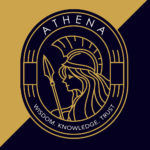Athena was the Greek goddess of wisdom. Ancient Greeks would visit her temple in Athens to seek answers to their most troubling issues. Modern times are no less complicated, and lacking pilgrimage to a temple as an option, we turn to other sources for advice. This may mean a friend, a therapist, or perhaps… an advice column.
Ask Athena is Science Editor’s advice column where you can bring your most challenging questions. Have a problem managing staff? Ask Athena! Struggling with your own performance rut? Ask Athena! Need ideas to make your publication the best it can be? Athena can help with that too. This column will address all questions related to publishing, whether they be about internal office issues or external journal wide challenges.
Submit your questions to scienceeditor@councilscienceeditors.org. All questions can remain anonymous, so you need not reveal your identity for sensitive issues. We will attempt to answer them as quickly as we can, and post answers online ahead of print so that time sensitive questions are not delayed.
Ask Athena: Should disclosures be listed for editorials?
Dear Athena,
For guest editorials, what language do you use/suggest for a disclosure statement, or is a disclosure not necessary? Would the following be appropriate (as an example) or does some of the wording not apply to opinion pieces (funding, etc.)?
The authors have no conflicts of interest to disclose. None of the authors received outside funding for the production of this original manuscript and no part of this article has been previously published elsewhere.
Cordially,
Confused about Conflicts
Dear Confused about Conflicts,
Thank you for asking this important question. I appreciate you wanting to be sure that disclosures and funding are handled appropriately in your editorials. I recommend erring on the side of caution and including a disclosure statement on every article your journal publishes, regardless of article type. If your journal does not have a disclosure policy, I encourage you to review the International Committee of Medical Journal Editors (ICMJE) policy and consider using their form, which can also be adapted to fields beyond the biomedical realm: (http://www.icmje.org/recommendations/browse/roles-and-responsibilities/author-responsibilities–conflicts-of-interest.html). The form will help guide authors through determining relevancy for each article.
Likewise, if your author received funding to write the editorial, you should include the funding information. Funders usually require authors to include a statement acknowledging their funding support, and it is important for you to help with author compliance. Most submission systems include an integrated option for authors to easily provide their funder name as it relates to each article they write.
Ask Athena: How can I avoid editor conflicts of interest with double-anonymous review?
Dear Athena,
At our journal, we conduct double-anonymous reviews, so the identity of the authors is unknown to the reviewers and vice-versa. However, our editor in chief is still an active author in the field, and sometimes submits articles to our journal. What process do you recommend when the editor in chief is a coauthor of a submitted manuscript? Our editor in chief also approves all final decisions, so if an article is recommended for publication by the reviewers, who would approve that decision?
Sincerely yours,
Struggling with a Peer Review Question
Dear Struggling,
Double anonymous peer review definitely has its benefits, but it doesn’t solve every problem, as your question demonstrates. In this case, you are wise to consider how to ensure it is clear to readers that conflict of interest was avoided, and the editor in chief (EIC) did not have a role in the evaluation and acceptance of his own paper.
First, if you are using any of the major manuscript submission systems, you probably have the option to block editors from viewing particular papers. Make sure you are utilizing that feature, so that the editor can’t see his paper in the submission system.
Next, as is recommended regardless of the type of peer review, appoint a different editor to oversee any papers where the EIC may have a conflict. That person will oversee the review process, but more importantly, will have the final decision-making power for any paper on which the EIC is an author. If you have a deputy editor or another editor with similar expertise, that person would be a good choice for this role. Again, if you are using one of the common submission systems, this should be a fairly simple matter.
Finally, make sure you make it clear to readers that you have this policy in place. Some journals explain their policy on their website, usually with the instructions to authors. I also recommend coming up with a standard disclaimer to include with any published paper that includes an editor or editorial board member in the author list. It can be a fairly simple statement along the lines of, “Dr. Jones is Editor in Chief of Journal of Important Research. Journal policy recused the author from having any role in the peer review of this manuscript.”
These simple steps can help you avoid conflict of interest for the EIC and also assure your readers that the journal has a policy in place to minimize an opportunity for bias in peer review.
Answers to Ask Athena questions are a group effort by members of the CSE Education Committee.

